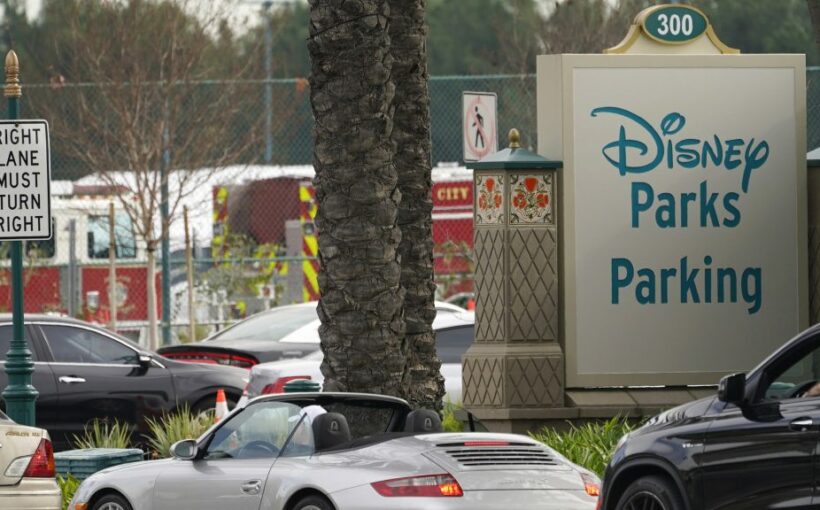On Thursday, two California Assembly members representing districts impacted greatly by the closure of Disneyland and Six Flags Magic Mountain were set to co-sponsor a bill that will place all theme parks in the “Orange – Moderate – Tier 3” of the state’s Covid-19 Industry Guidance for Amusement Parks and Theme Parks. The guidance in Gov. Gavin Newsom’s Blueprint for a Safer Economy currently restricts theme parks from reopening until the county in which they are located achieves the “Yellow – Minimal – Tier 4.”
Even then, the guest limit at parks would be 25% and indoor dining establishments could only operate at 25% capacity. Disneyland, Magic Mountain and Knott’s Berry Farm all closed in March 2020.
Amusement park operators have long chafed at what they considered the too restrictive demands placed on them by Newsom’s blueprint. They argue that there has not been a single documented case at a theme park, and The California Attractions and Parks Association laid out its plan for stringent virus prevention measures.
“We should be in Tier Three, along with other industries that have proven they can reopen responsibly,” said Karen Irwin, president and COO of Universal Studios Hollywood in October. “Our employees are ready to go back to work and the fact that they won’t be able to do so until well into next year is shameful.”
Dubbed AB 420, the new bill is being sponsored by Assembly members Sharon Quirk Silva (D-Buena Park, West Anaheim) and Suzette Valladares (R-Santa Clarita). Quirk-Silva is vhair and Valladares vice chair of the Arts, Entertainment, Sports, Tourism and Internet Media Committee. Disneyland is, of course, in Buena Park-adjacent Anaheim and Magic Mountain is located in Santa Clarita.
The bill’s main thrust is that authorities should “treat large and small theme parks equally.” In December 2020, state guidance was amended to allow smaller theme parks to reopen in the orange tier but confining larger parks to stay closed until their cities reach the more difficult Minimal — yellow — tier. Read a draft version of the bill’s language here.
CAPA came out with a statement strongly supporting the legislators’ plan.
“We deeply appreciate Assembly Members Quirk-Silva and Valladares for their leadership and for introducing legislation on Safe Theme Park Reopening,” said Erin Guerrero, Executive Director, California Attractions and Parks Association.
“Worldwide, theme parks have proven they can reopen responsibly while protecting the health of guests and staff. Science and data show it can be done. California should allow theme parks to reopen responsibly in the Orange – Moderate – Tier 3.”
Newsom has disagreed. While he has not cited any specific data, the governor says the danger is self evident.
“Self-evidently,” said Newsom last fall, “we should be concerned about opening up large theme park which, by definition, people mix from all possible walks of life and putting ourselves and others at risk of seeing transmission rates rise.”
“Nearly a year after parks closed in response to the pandemic, tens of thousands of employees remain out of work, while local businesses, communities surrounding theme parks, and local governments face ongoing negative consequences,” said Guerrero on Thursday.
“Covid transmission rates are improving and the vaccination distribution is underway, yet California’s major theme parks have no timeline and no realistic pathway toward reopening if left in the ‘Yellow- Minimal – Tier 4’ of state guidance.”
On Wednesday, Newsom said he sees “the light at the end of the tunnel,” citing increased vaccinations and lower case rates. But while he has seemingly flipped on other shutdown-related stances, such as his insistence the state stay closed last spring and the prohibition of dining in restaurants, the governor has not budged yet on the state’s amusement parks.
Guerrero and other wish he would. But in the absence of action from Newsom, they applaud the bill being introduced.
“California’s iconic theme parks are important economic drivers for the state and local regions,” she said. “AB 420 is needed so theme parks can plan to reopen responsibly and get back to contributing to the economic recovery of our state.”
Read More About:
Source: Read Full Article
